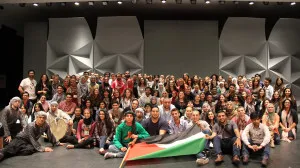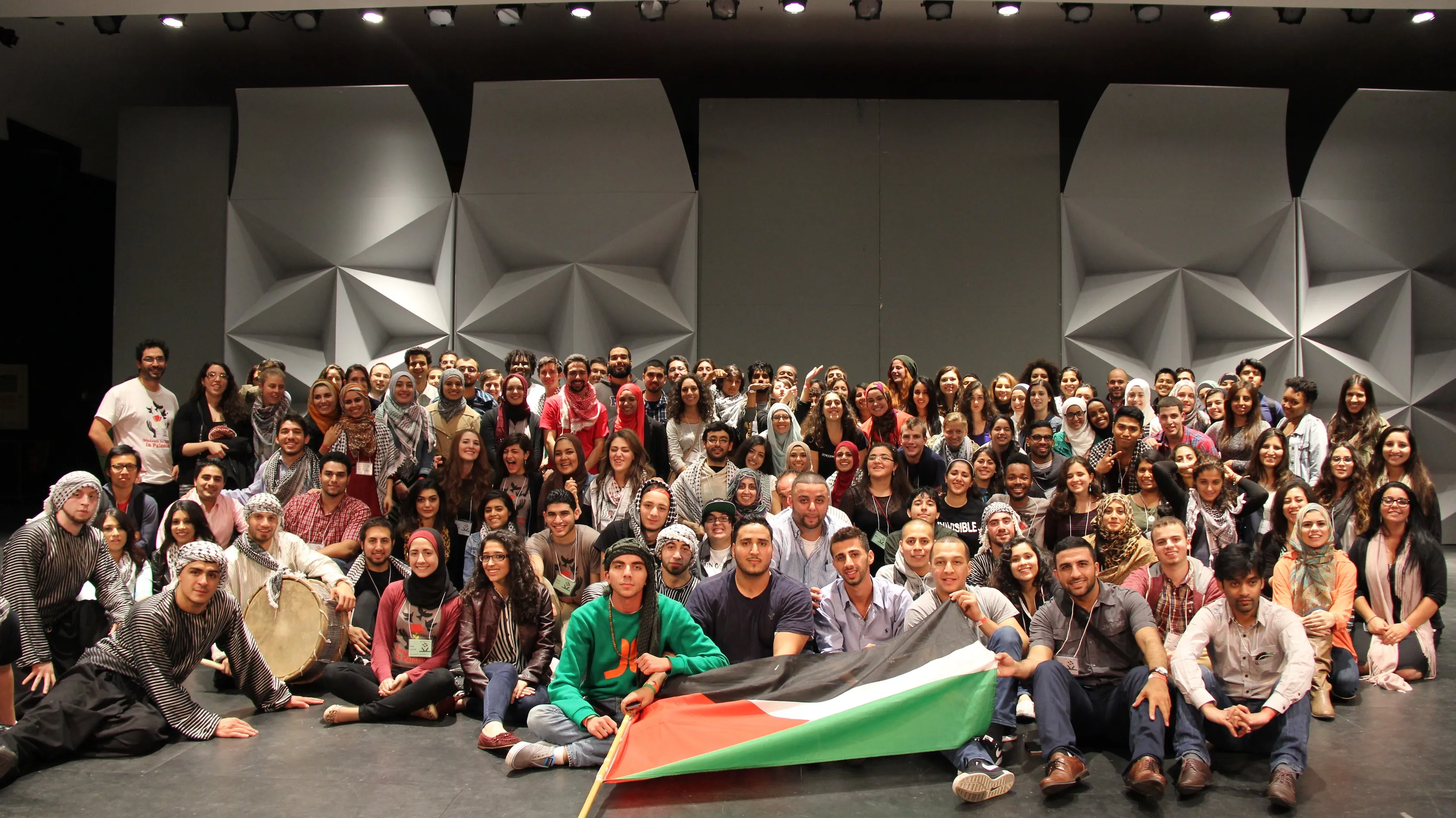This past weekend, Stanford Students for Palestinian Equal Rights (SPER) hosted nearly 300 college students from more than 70 campuses across the country to express solidarity with the Palestinian liberation movement.
The third annual conference was organized by the Students for Justice in Palestine (SJP), a national student organization founded in 2001 at UC-Berkeley, committed to promoting human rights for people living in Israel and Palestine.
Throughout the weekend, attendees participated in political development workshops and other events intended to support their advocacy for the Palestinian liberation movement.
“The theme that we’re working with this year is ‘From Margin to Center: Connecting Struggles, Forging a National Movement,’” said Kristian Bailey ‘14, a leading organizer of the conference. “The idea behind that is, for a lot of time, the issue of Palestine has been on the periphery of campus discussions about justice and liberation.”

According to Bailey, SPER—the local chapter of SJP—had been planning and organizing this conference since June, when their bid to host the conference at Stanford was accepted.
“Students for Justice in Palestine is one of the most coordinated student movements we have right now,” Bailey said. “This is our time to figure out what we will be doing once we get to that stage of having a national movement.”
SPER has 10 to 20 active members and was originally founded in 2006 under the name Students Confronting Apartheid in Israel.
“Our work is centered around making sure that universal rights are respected in Israel and Palestine, because currently the situation is that international human rights laws are being violated in that region,” Bailey said.
Bailey added that members of the group include Palestinian students who have lived under occupation and students whose parents are Palestinian refugees living in the United States, Jordan and elsewhere.
While planning this conference, SPER enlisted the help of SJP chapters from Columbia University and the University of Michigan, both of which had hosted the SJP conference in the past.
The conference opened on Friday, Oct. 25 with a screening of the documentary, “Where the Birds Should Fly,” which recounts the experiences of two young Palestinian women during the conflict in the Gaza Strip in 2008 and 2009. The screening was followed by a discussion led by advocates from West Coast chapters of SJP of their efforts in California on behalf of the Palestinian liberation movement.
Only a select number of events were open to the public, including a Saturday night performance at Dinkelspiel Auditorium celebrating Palestinian music, dance, poetry and spoken word; a closing plenary featuring speakers from the Palestinian Youth Movement, the International Jewish Anti-Zionist Network and the Malcolm X Grassroots Movement.
During the conference, organizers coordinated with the American Friends Service Committee—a Quaker organization devoted to peace efforts—to use the arcade at Old Union to display posters from other boycott movements throughout history, including campaigns against South African apartheid, Jim Crow-era segregation in the United States and the Holocaust.
Saturday’s opening plenary featured Mezna Qato, recipient of the Ibrahim Abu Lughod Award in Palestine Studies from Columbia University’s Middle East Institute, and Loubna Qutami, research assistant for the Arab and Muslim Ethnicities and Diasporas Initiative.
After the opening plenary, conference participants broke out into 11 political development workshops on topics including “Connecting with Community: Students and the Promises of National Movement Building” and “Breaking the Special Relationship: the ‘Israel Lobby’ & Political Power in the U.S.”
Several other sessions discussed connections between the current movement for Palestinian liberation and other liberation movements, both past and present.
“One of the largest ideas behind the conference is that Palestine connects to so many struggles against colonialism or militarism or racism that are going on around the world,” Bailey said. “That’s reflected in some of the participation we have in the conference itself.”
Darrell, an undergraduate from Oberlin College who asked to be identified only by his first name, was enthusiastic about his experience at the conference.
“I wouldn’t trade these two days for anything,” he said. “[This conference] has given me a lot of tools that I would not have had for mobilization, education, and things like that that I will certainly take with me.”
Contact Sam Kurland at kurlands ‘at’ stanford.edu.
